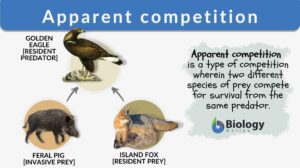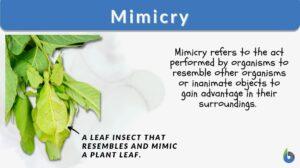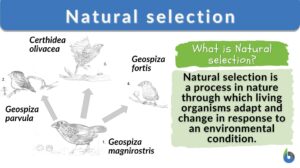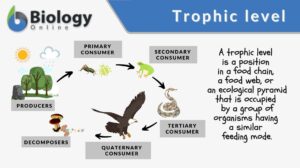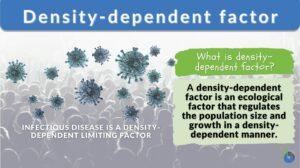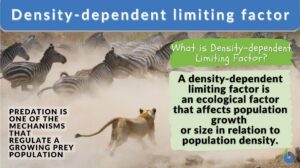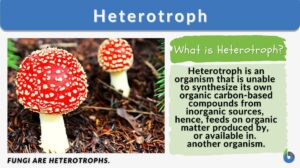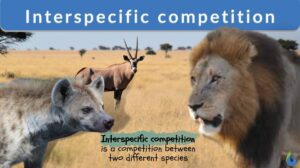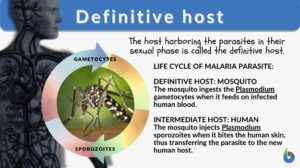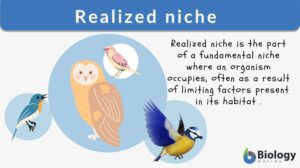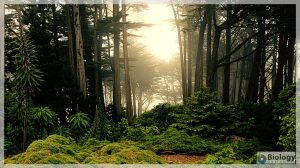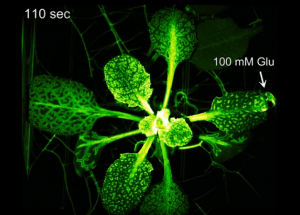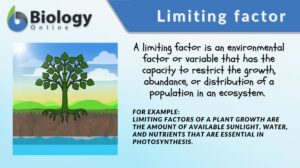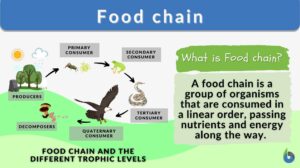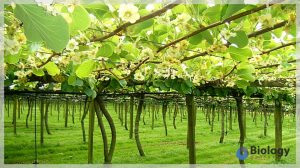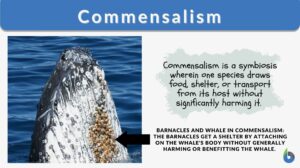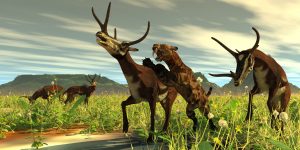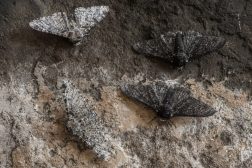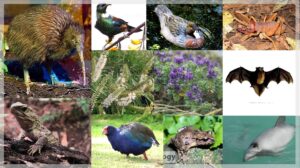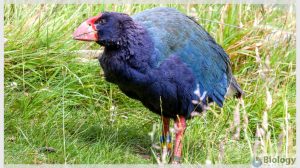Search Results for: predator
Predator-prey relationship
Definition noun An interaction between two organisms of unlike species in which one of them acts as a predator that... Read More
Apparent competition
Competition Definition One of the many branches of biology is ecology. Ecology is the study of the relationships that the... Read More
Natural selection
Natural Selection Definition What is natural selection in biology? Natural selection is defined as a process in nature... Read More
Trophic level
In ecology, a trophic level pertains to a position in a food chain or ecological pyramid occupied by a group of organisms... Read More
Density dependent factor
Density-dependent factors are the limiting factors of an ecosystem that regulate population growth in a density-dependent... Read More
Density dependent limiting factor
What Is A Density-Dependent Limiting Factor? Density-dependent limiting factors are limiting factors, which, depending on... Read More
Heterotroph
Heterotroph Definition What is a heterotroph? Does a heterotroph make its own food? In biology and ecology, a heterotroph... Read More
Interspecific competition
Interspecific Competition Definition In Biology, competition is defined as the process that occurs among species that have... Read More
Definitive host
Different Biological Relationships The biological world is interconnected whether we notice it or not. All the life forms... Read More
Realized niche
What is a niche? A niche can be defined as the means by which a species or an individual interacts with its environment. In... Read More
Community Patterns
By: Maria Victoria Gonzaga In the previous lesson, we learned what a population is, its attributes, and processes... Read More
SENI Biometric Analysis on the extinct Scincidae species: Macroscincus coctei (underlined)
Brian L. Schnirel Leeway Corucia Research Center (LCRC) Courtesy: Polyphemos (2004) Introduction: It has been... Read More
Parasitism
Organisms depend on different sources of food to survive. Larger organisms like plants make their own food (autotrophs) and... Read More
Environmental resistance
Environmental Resistance Definition Environmental resistance is such a process in which certain different elements or... Read More
Plant sets off “SOS” for plant defense when it gets hurt
When herbivore, such as an insect, nibbles a plant leaf, the plant sets off an "SOS" or distress signal as one of the... Read More
Thanatosis – Faking Death To Escape Doom
Thanatosis -- pretending to be dead -- is one of the best strategies that certain wild animals came up with in order to... Read More
Limiting factor
Limiting Factor Definition A limiting factor refers to any of the factors (variables) in an environment capable of limiting... Read More
Food chain
Everything is a cycle in life. The way organisms consume their food also follows a cycle. This is usually described as the... Read More
Biosecurity and Biocontrol
By: Maria Victoria Gonzaga In the previous lesson, we learned about the importance of modern science... Read More
Nematocyte
Definition noun, plural: nematocytes A specialized cell containing a nematocyst used by cnidarians to capture their prey and... Read More
Commensalism
Commensalism Definition What is commensalism? Literally, commensalism is a Latin word that means ‘to eat at the same... Read More
Phagotrophy
Definition noun A process of ingesting relatively large particles of food that carries out via intracellular... Read More
Arboreal locomotion
Definition noun A form of locomotion of animals that live in and move through trees Supplement Locomotion pertains to the... Read More
Abscission
Definition noun (botany) The normal shedding of a senescent plant part or organ (e.g. old leaf or ripe fruit) (zoology) The... Read More
Density dependence
Definition noun (population ecology) An effect in which the intensity changes with the increasing population density, e.g.... Read More
Siphonophore
Definition noun, plural: siphonophores Any of the various marine invertebrate of the order Siphonohorae of the class... Read More
Biological magnification
Definition noun, plural: biological magnification The increasing concentration of a particular substance (e.g. toxin) as it... Read More
Early Mammals on Earth
By the time the dinosaurs were extinct 65 million years ago, the world's landmass had split up into more or less the... Read More
Examples of Natural Selection
Reviewed by: Mary Anne Clark, Ph.D. Darwin's Finches Darwin's finches are an excellent example of the way in... Read More
New Zealand’s Biodiversity
Written by: Maria Victoria Gonzaga Peer-reviewed by: Cathy Buntting, Ph.D. and Andrea Soanes Why is New... Read More
Takahē (Porphyrio hochstetteri)
By: Maria Victoria Gonzaga Previously, we've seen the different animals endemic to New Zealand. Due to the... Read More
New Zealand’s Unique Flora
By: Maria Victoria Gonzaga In the previous lesson, we've come to know some of the most fascinating endemic... Read More
Population Growth and Survivorship
By: Maria Victoria Gonzaga Previously, we learned about biodiversity and endemism. Now, let's look at the... Read More


